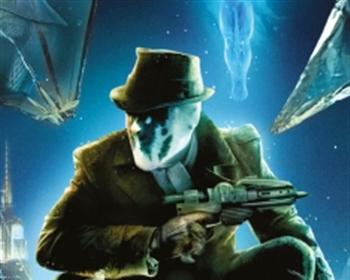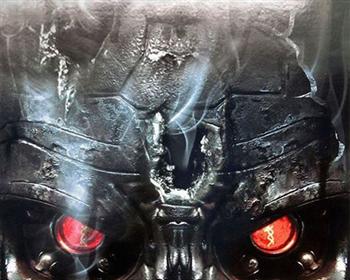Zhang Yimou is auteur du jour at the moment when it comes to breathing
epic cinematic life into oriental fables. But following a somewhat
tepid effort with his last film, Hero, can House of Flying Daggers
strike a renewed blow for mythical Chinese films?
The time is the 9th century, the place China. The prevailing
government, venal to the core, no longer commands the respect of the
people – subversion is rife. The House of Flying Daggers is chief
amongst these subversives, a band of outlaws who, pardoning the
anachronism, run amok Robin Hood stylie, stealing from the rich to give
to the poor. And, for the main part, all thanks to some rather nifty,
rather aerodynamically-improbable flying daggers that course through
the air with uncommonly, disquieting precision. The Yorkshire Ripper
would no doubt be jealous. In a bid to shut the renegade outfit down,
Jin (Takeshi Kaneshiro), a captain in the military guard, attempts to
infiltrate the clandestine order by ingratiating himself with a
beautiful, apparently blind courtesan (Ziyi Zhang) thought to be the
daughter of the recently-slain Daggers leader. But all is not what it
seems. And Jin soon finds himself embroiled in a predicament which will
question his allegiance, reveal sham friendships and ensnare him in a
potentially lethal love triangle. That’ll teach him for trying to get
his rocks off.
There’s no argument that Yimou knows cinematography. Even though Hero
was a befuddled mess of a film, the stunning visual aesthetic it bore
was, quite frankly, a cinematographer’s supersized wet dream. House of
Flying Daggers accomplishes this and more. For a start (though,
admittedly, excepting the film’s final denouement), the story is both
quite credible and engaging, even for a genre in which wackiness, the
arcane and spontaneous levitation passes for sobriety. That this story
of honour, jealously, deceit and love is also facilitated by some
genuinely imaginative cinematography only bolsters the film’s allure,
as do the staunch acting turns. More auspicious still is the varied
nature of the production: from dramatic choreography to poetic
scene-crafting, from fleeting humour to well-executed action sequences
the film brings to market a splendidly absorbing array of features that
should effortlessly draw in its audience.
A couple of gripes, however, do persist.
Not much, firstly, is made of the Flying Daggers’ endeavours to plunder
from the affluent for the sake of the needy; nor does the screenplay
especially account for the fearsome reputation of the ‘House’. Sadly,
too, after much skilfully-contrived scene-building the film’s
pugilistic finale borders on the farcical: at one time or another each
of the three main protagonists seems to die, resurrect, re-die and then
re-resurrect, all whilst their once overcast hillside battle-ground
takes on a sunny autumnal hue before then giving way to . . . eight
foot of snow. In the one afternoon. Glad to see naturalism witnessing a
renaissance.
On balance, House of Flying Daggers sees Yimou fairly much re-assert
himself as a redoubtable directing force whilst equally reinforcing
that, give or take periodical moments of screenplay lunacy, this type
of Chinese theatre does have an audience in the West.


